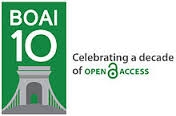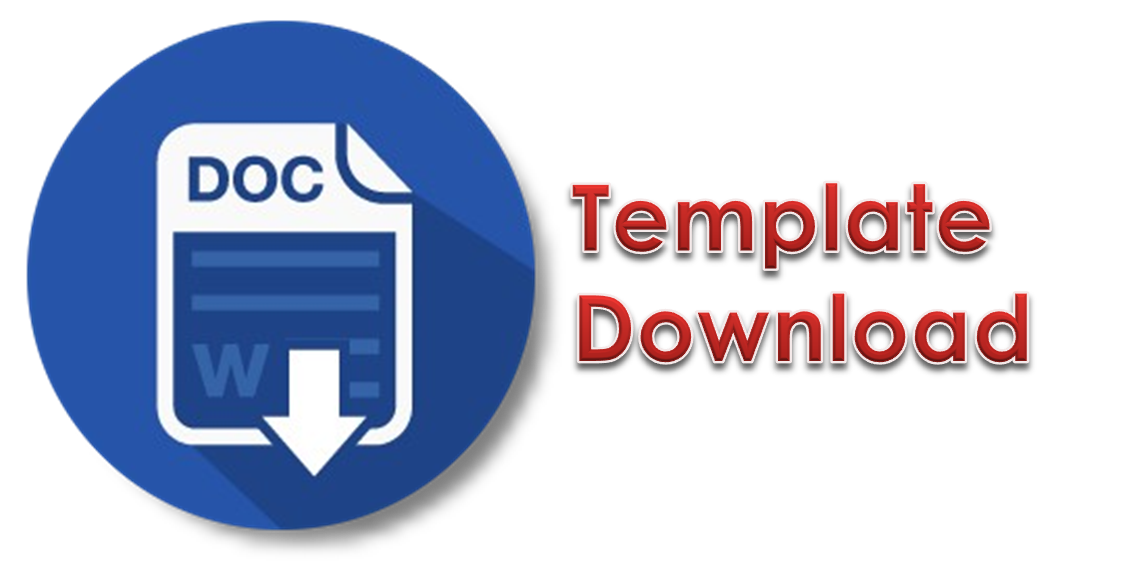- Focus and Scope
- Section Policies
- Peer Review Process
- Publication Frequency
- Open Access Policy
- Publication Ethics
Focus and Scope
Jurnal Manjemen Dakwah (P-ISSN: 2338-3992) is a scientific journal published by the Da'wah Management Department of UIN Syarif Hidayatullah, Jakarta in collaboration with the Association of Indonesian Da'i Academics and Professionals (APDI), twice a year (June-December). This journal exists as a means of publishing works with a focus in the field of da'wah management. The scope of the journal includes da'wah management, da'wah strategies, da'wah administration, Hajj and Umrah management, zakat, infaq and alms management, as well as Islamic Financial Management.
Every manuscript published in the Dakwah Management Journal will go through a review process using a double-blind review system, meaning that the author does not know the reviewer and the reviewer does not know the author's name.
Section Policies
Articles
Peer Review Process
Beberapa kebijakan review dalam Jurnal Manajemen Dakwah adalah sebagai berikut:
- Setiap naskah yang masuk akan dicek menggunakan web anti plagiarisme, Plagiarism CheckerX, atau turnitin.
- Setiap naskah yang masuk akan melalui proses review
- Proses reviewe menggunakan double-blind peer review
- Dalam proses review mitra bebestari memberikanan pertimbangan terkait dengan kebaruan, dampak ilmiah, simpulan dan referensi yang digunakan.
Keputusan reviewer akan menjadi pertimbangan editor untuk :
- Accept Submission (menerima naskah)
- Revisions Required (naskah perlu direvisi)
- Resubmit for review (mengirimkan naskah kembali)
- Resubmit elsewhere (mengirimkan naskah ke jurnal lain)
- Decline Submission (menolak naskah)
Naskah yang ditolah untuk publikasi karena beberapa alasan, yaitu:
- Artikel tidak sesuai dengan lingkup jurnal.
- Artikel tidak mengikuti aturan penulisan karya ilmiah atau pedoman penulisan jurnal.
- Kesalahan fatal dalam metodologi.
- Penulis menolak saran perbaikan yang diberikan oleh reviewer tanpa alasan yang bisa diterima.
- Naskah terindikasi plagiarisme dengan similarity lebih dari 20%.
Publication Frequency
Jurnal Manajemen Dakwah terbit setahun dua kali yaitu Bulan Juni dan Desember.
Open Access Policy
Jurnal Manajemen Dakwah provides immediate open access to its content on the principle that making research freely available to the public supports a greater global exchange of knowledge.
This journal is open access journal which means that all content is freely available without charge to users or / institution. Users are allowed to read, download, copy, distribute, print, search, or link to full text articles in this journal without asking prior permission from the publisher or author. This is in accordance with Budapest Open Access Initiative


Publication Ethics
Jurnal Manajemen Dakwah is a peer-reviewed journal to discuss about new findings in basic education especially at primary/elementary schools. This journal is publishing original research articles and case studies focused on basic education. This following statement clarifies ethical behavior of all parties involved in the act of publishing an article in this journal, including the author, the editor, the reviewer, and the publisher. This statement is based on COPE’s Best Practice Guidelines for Journal Editors.
Ethical Guideline for Journal Publication
The publication of an article in a peer-reviewed Jurnal Manajemen Dakwah is an essential building block in the development of a coherent and respected network of knowledge. It is a direct reflection of the quality of the work of the authors and the institutions that support them. Peer-reviewed articles support and embody the scientific method. It is therefore important to agree upon standards of expected ethical behavior for all parties involved in the act of publishing: the author, the journal editor, the peer reviewer, the publisher and the society.
Perkumpulan Ahli Majemen Dakwah Indonesia (PAMDI) as publisher of JMD : Jurnal Manajemen Dakwah takes its duties of guardianship over all stages of publishing seriously and we recognize our ethical and other responsibilities. We are committed to ensuring that advertising, reprint or other commercial revenue has no impact or influence on editorial decisions.
After you have finished reading this Publication Ethics Statement, please download Letter of Copyright Agreement. Please sign and submit the Ethical Statement as a part of your initial article submission. The Copyright Agreement must be submitted before the article can be published.
Publication decisions
The editor of the JMD : Jurnal Manajemen Dakwah is responsible for deciding which of the articles submitted to the journal should be published. The validation of the work in question and its importance to researchers and readers must always drive such decisions. The editors may be guided by the policies of the journal's editorial board and constrained by such legal requirements as shall then be in force regarding libel, copyright infringement and plagiarism. The editors may confer with other editors or reviewers in making this decision.
Fair play
An editor at any time evaluates manuscripts for their intellectual content without regard to race, gender, sexual orientation, religious belief, ethnic origin, citizenship, or political philosophy of the authors.
Confidentiality
The editor and any editorial staff must not disclose any information about a submitted manuscript to anyone other than the corresponding author, reviewers, potential reviewers, other editorial advisers, and the publisher, as appropriate.
Disclosure and conflicts of interest
Unpublished materials disclosed in a submitted manuscript must not be used in an editor's own research without the express written consent of the author.
Duties of Reviewers
Contribution to Editorial Decisions
Peer review assists the editor in making editorial decisions and through the editorial communications with the author may also assist the author in improving the paper.
Promptness
Any selected referee who feels unqualified to review the research reported in a manuscript or knows that its prompt review will be impossible should notify the editor and excuse himself from the review process.
Confidentiality
Any manuscripts received for review must be treated as confidential documents. They must not be shown to or discussed with others except as authorized by the editor.
Standards of Objectivity
Reviews should be conducted objectively. Personal criticism of the author is inappropriate. Referees should express their views clearly with supporting arguments.
Acknowledgment of Sources
Reviewers should identify relevant published work that has not been cited by the authors. Any statement that an observation, derivation, or argument had been previously reported should be accompanied by the relevant citation. A reviewer should also call to the editor's attention any substantial similarity or overlap between the manuscript under consideration and any other published paper of which they have personal knowledge.
Disclosure and Conflict of Interest
Privileged information or ideas obtained through peer review must be kept confidential and not used for personal advantage. Reviewers should not consider manuscripts in which they have conflicts of interest resulting from competitive, collaborative, or other relationships or connections with any of the authors, companies, or institutions connected to the papers.
Duties of Authors
Reporting standards
Authors of reports of original research should present an accurate account of the work performed as well as an objective discussion of its significance. Underlying data should be represented accurately in the paper. A paper should contain sufficient detail and references to permit others to replicate the work. Fraudulent or knowingly inaccurate statements constitute unethical behavior and are unacceptable.
Originality and Plagiarism
The authors should ensure that they have written entirely original works, and if the authors have used the work and/or words of others that this has been appropriately cited or quoted.
Multiple, Redundant or Concurrent Publication
An author should not, in general, publish manuscripts describing essentially the same research in more than one journal or primary publication. Submitting the same manuscript to more than one journal concurrently constitutes unethical publishing behavior and is unacceptable.
Acknowledgment of Sources
Proper acknowledgment of the work of others must always be given. Authors should cite publications that have been influential in determining the nature of the reported work.
Authorship of the Paper
Authorship should be limited to those who have made a significant contribution to the conception, design, execution, or interpretation of the reported study. All those who have made significant contributions should be listed as co-authors. Where there are others who have participated in certain substantive aspects of the research project, they should be acknowledged or listed as contributors. The corresponding author should ensure that all appropriate co-authors and no inappropriate co-authors are included on the paper and that all co-authors have seen and approved the final version of the paper and have agreed to its submission for publication.
Disclosure and Conflicts of Interest
All authors should disclose in their manuscript any financial or other substantive conflicts of interest that might be construed to influence the results or interpretation of their manuscript. All sources of financial support for the project should be disclosed.
Fundamental errors in published works
When an author discovers a significant error or inaccuracy in his/her own published work, it is the author’s obligation to promptly notify the journal editor or publisher and cooperate with the editor to retract or correct the paper.







